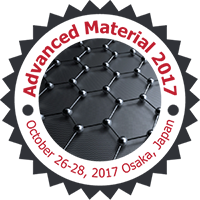
Jianhua Hao
The Hong Kong Polytechnic University, Hong Kong
Title: Lanthanide Luminescence in Nanocrystals and Layered Semiconductor Nanosheets for Biomedical and Nanophotonic Applications
Biography
Biography: Jianhua Hao
Abstract
The ability of lanthanide ions to generate fascinating near-infrared (NIR) emissions has played important roles in optical fibre communication, semiconductor optoelectronic devices, biomedical imaging and bioanalyses. Two aspects of my group’s recent works on the lanthanide activated advanced materials and nanotechnology will be introduced. Firstly, we have developed various lanthanide doped nanocrystals for photonic and biological applications. For instance, biosensors with both high sensitivity and rapid response are greatly desired for enabling rapid and sensitive detection of various virus gene in a cost-effective way. We have developed lanthanide doped upconversion nanoprobe/nanoporous membrane to form a heterogeneous assay. Compared to the homogeneous assay, the limit of detection in the heterogeneous assay is significantly improved. Secondly, the ultimate goal of making nanoscale electronic and optoelectronic devices greatly stimulates atomically thin material and heterostructure research. We have introduced lanthanide dopants into two-dimensional (2D) layered semiconductor nanosheet hosts and realize NIR-to-NIR down- and up-conversion photoluminescence. Importantly, the luminescence of 2D materials simply pumped by a single NIR laser diode can be extended to a wide range of NIR spectrum, including telecommunication range at 1.55 μm. By considering the abundant energy levels arisen from lanthanide ions, our works open a door to greatly extend and modulate the luminescence wavelengths of 2D semiconductors, which will benefit for not only investigating many appealing fundamental issues, but also developing novel nanophotonic devices.

